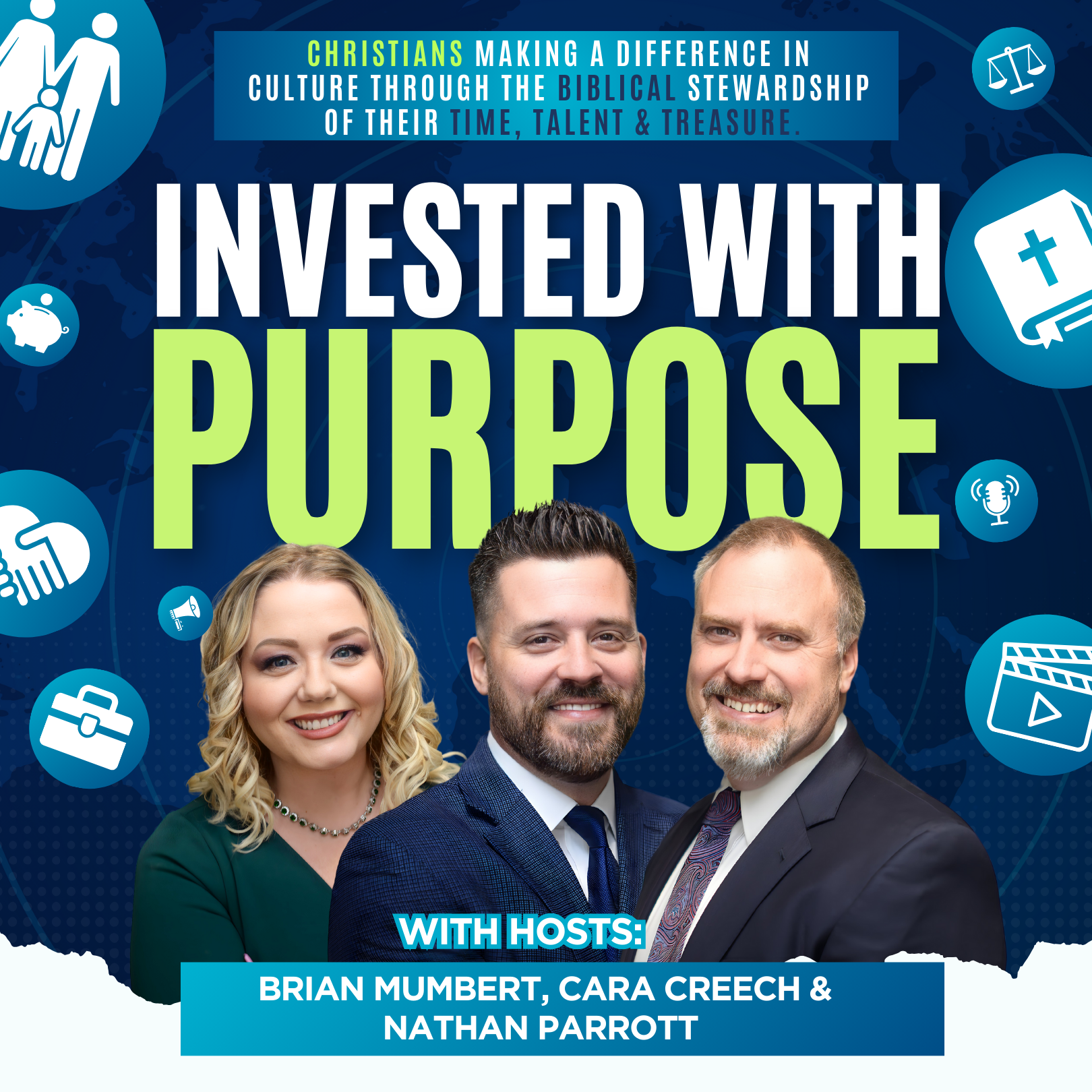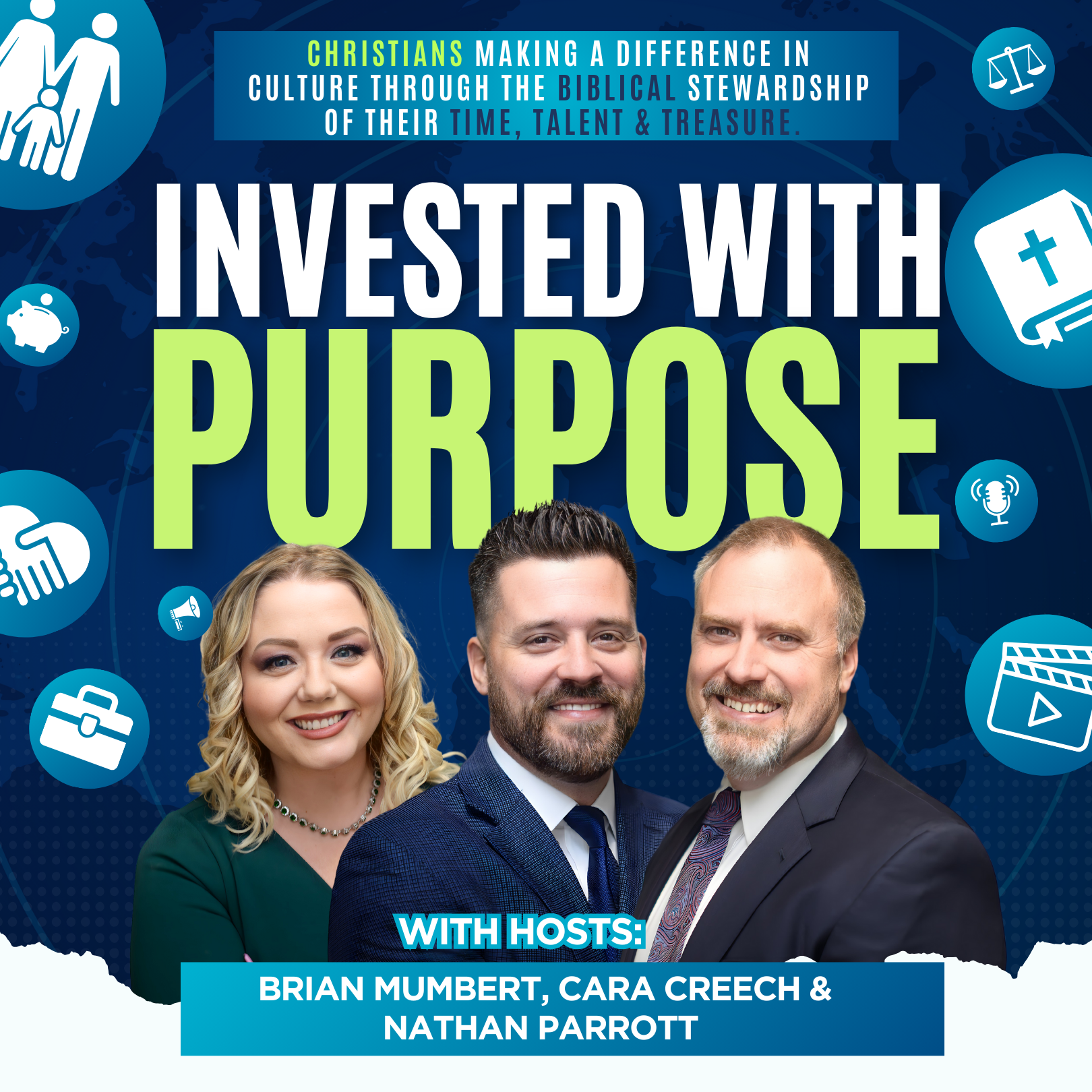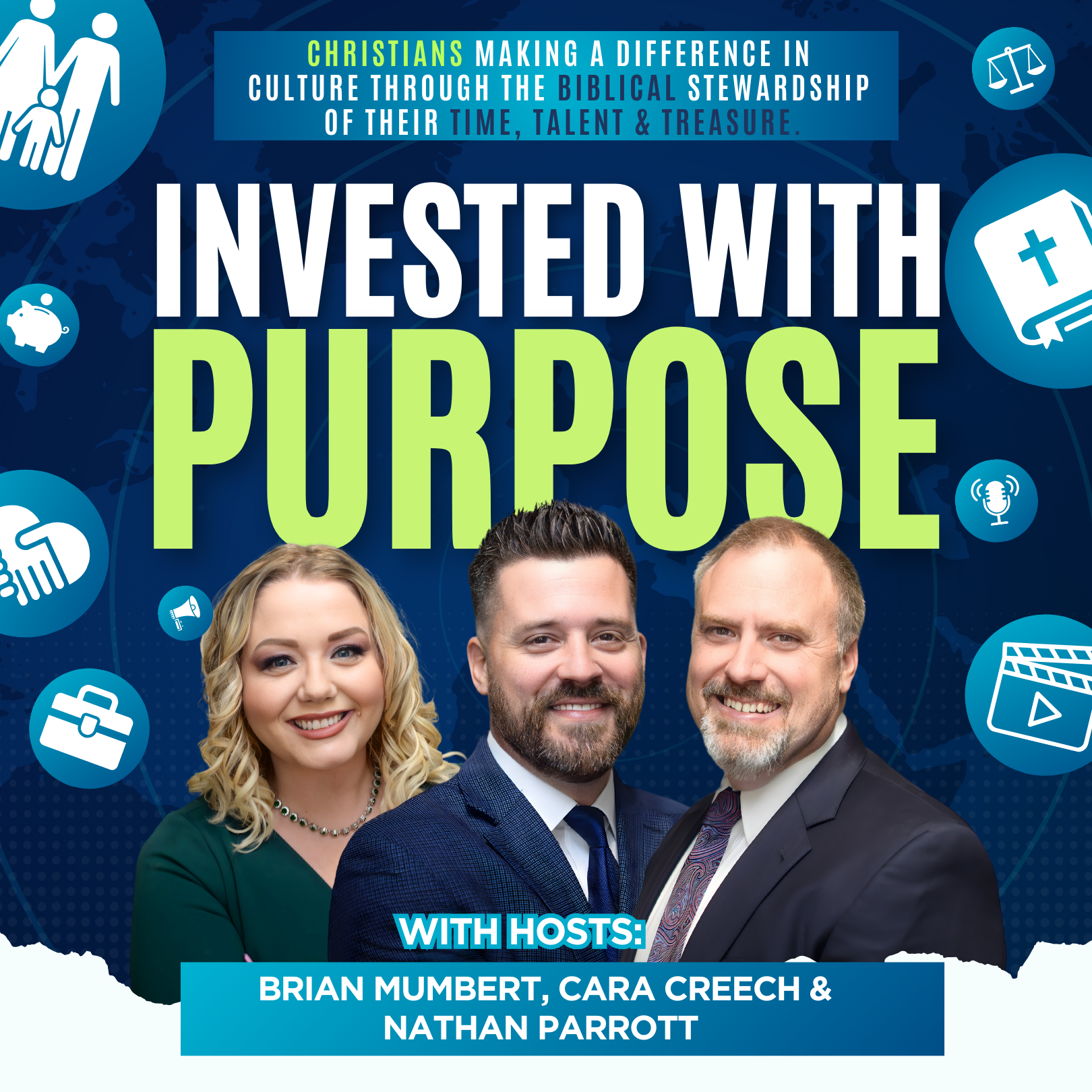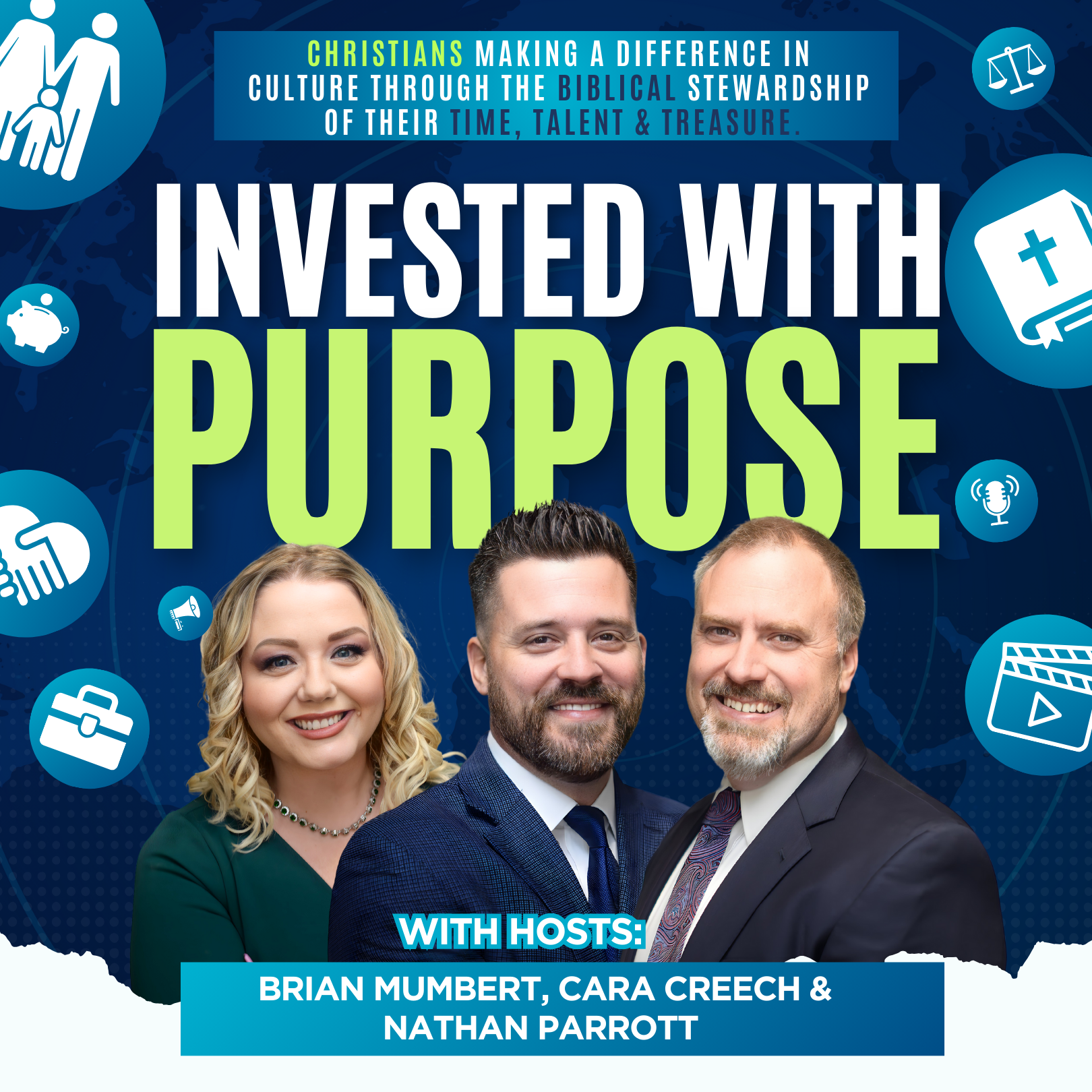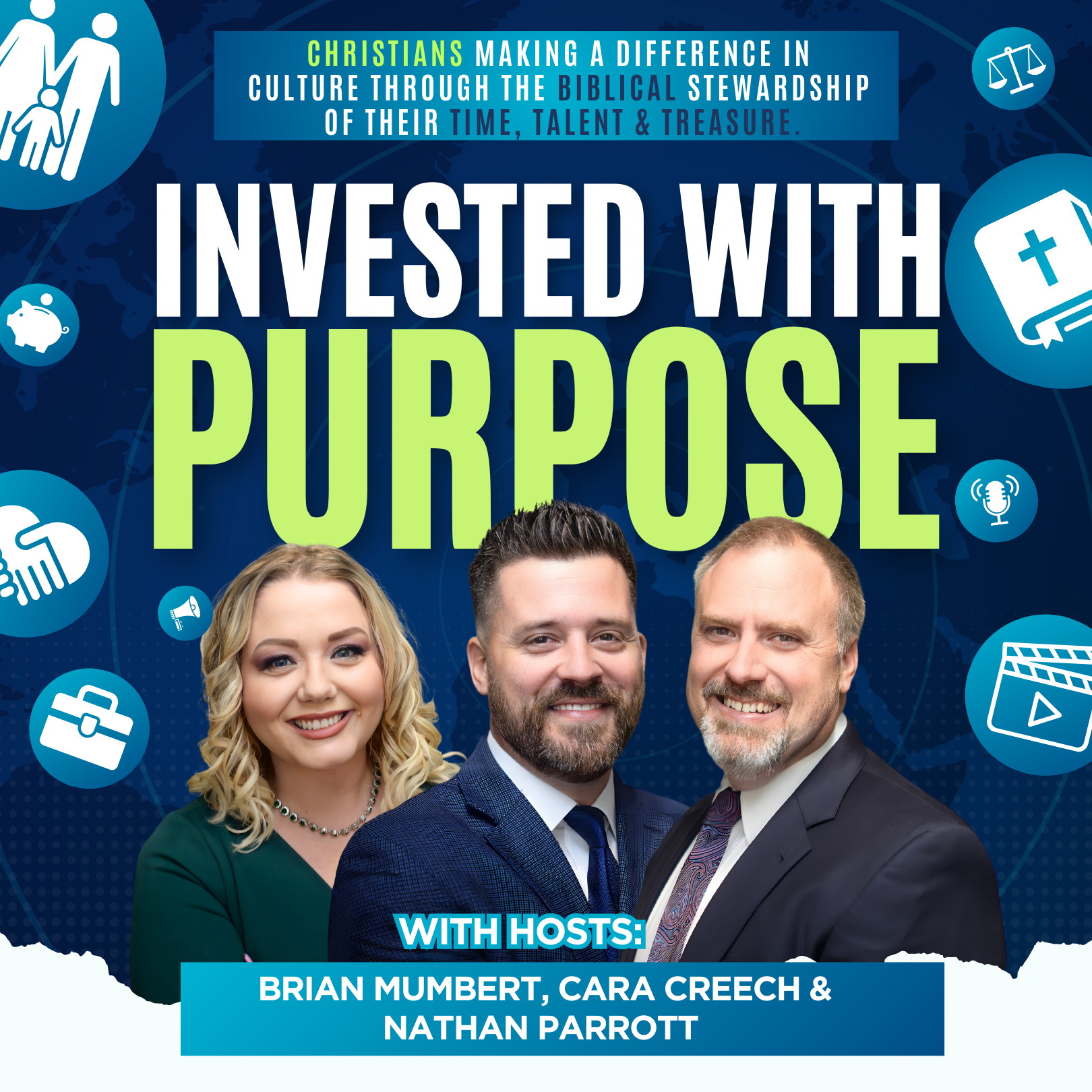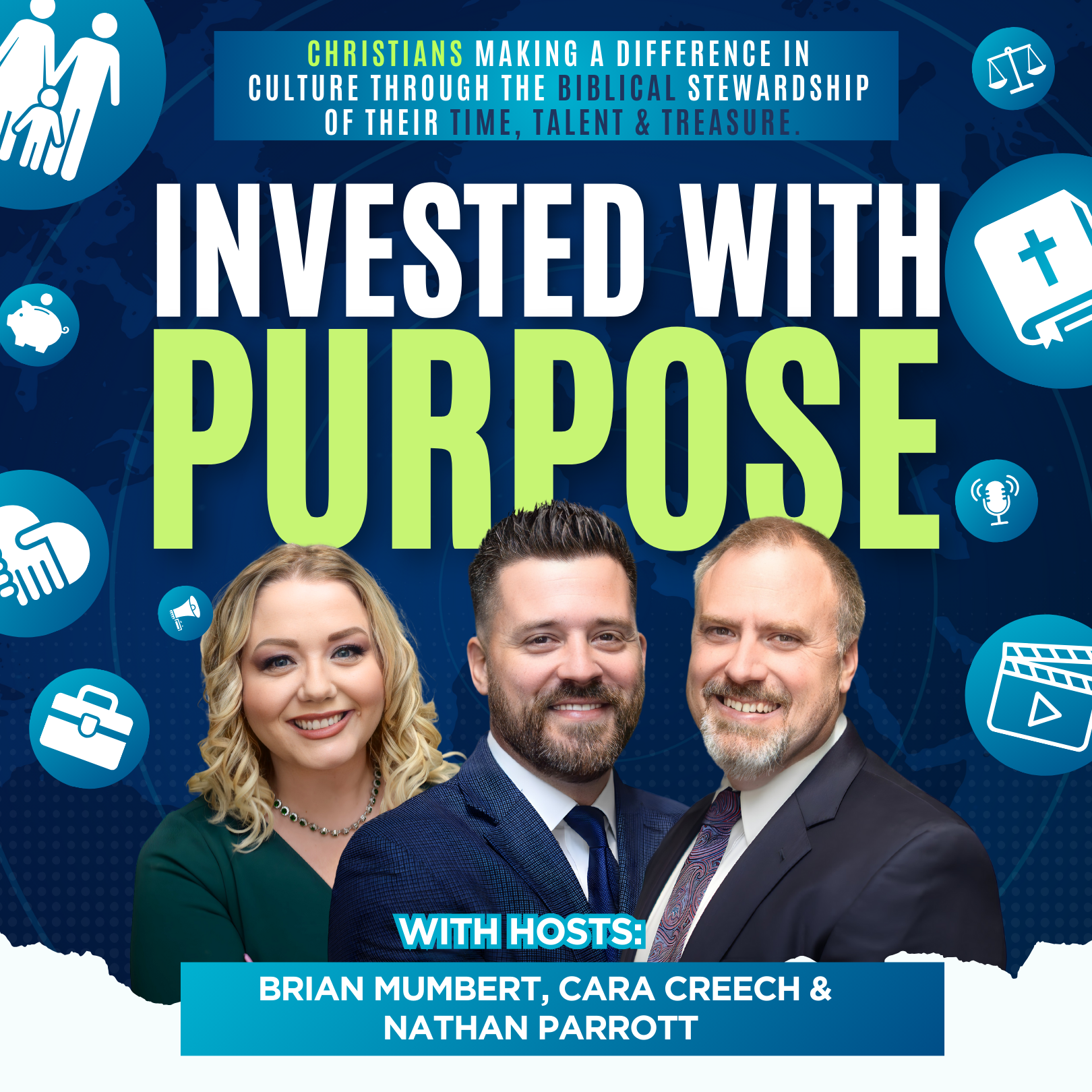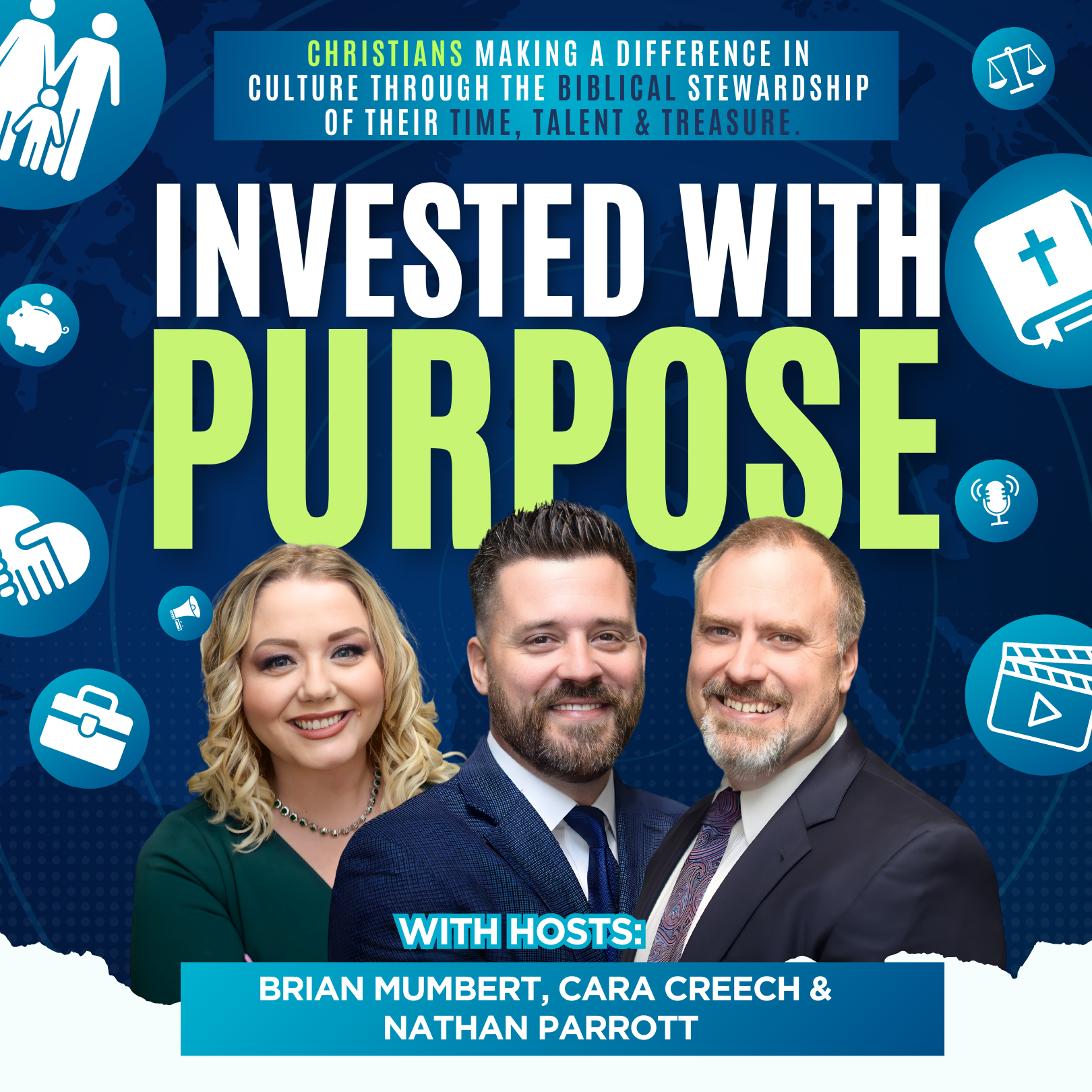Healing after Success in the Music Industry with Jeannie Ortega
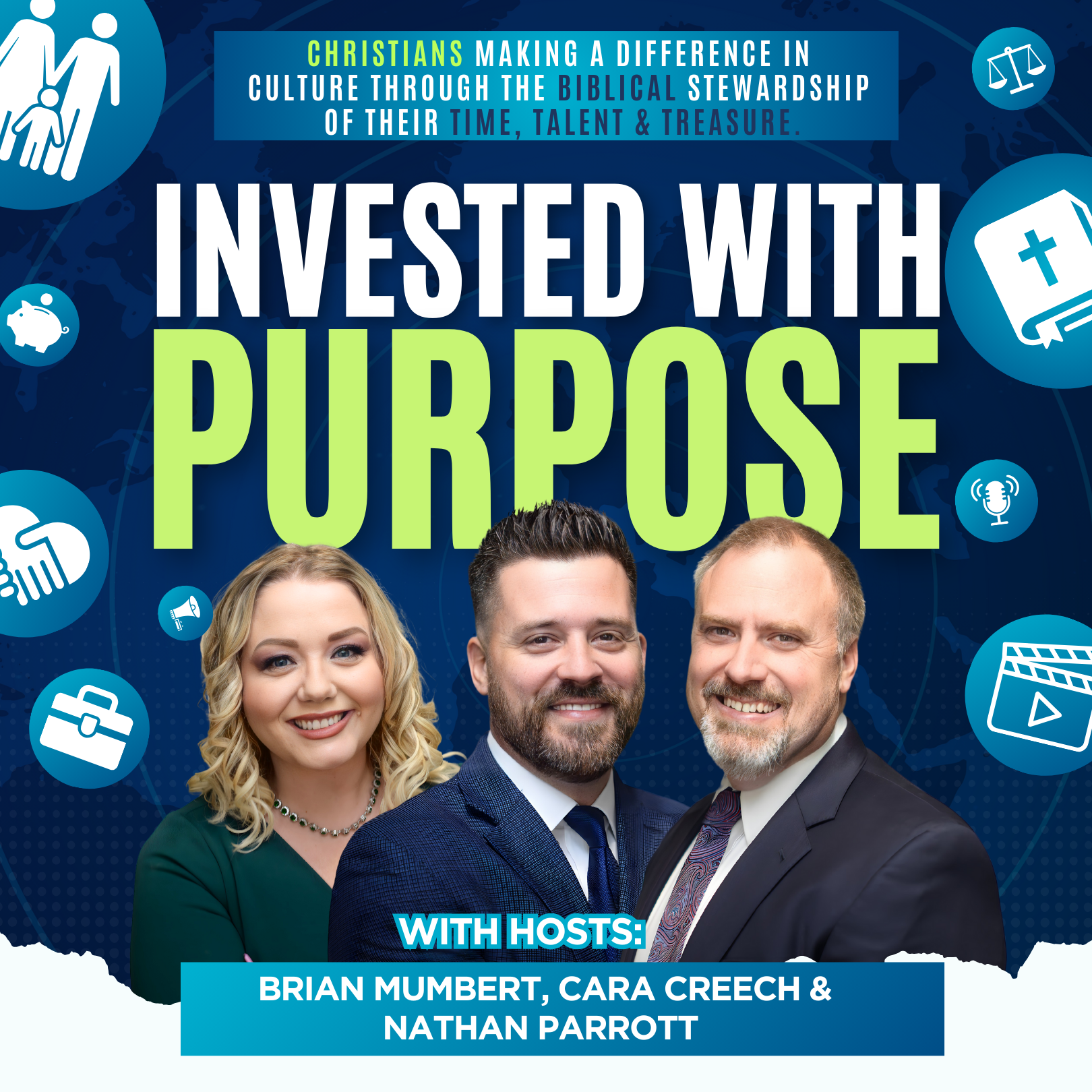

What comes next after you have reached the ultimate stardom and you are still unfulfilled? Jeannie Ortega Law shares her journey from a challenging upbringing in Brooklyn, New York, to finding her voice in the music industry. She discusses the struggles of growing up with unique aspirations in a community that often felt limiting, the impact of jealousy and envy, and her spiritual background rooted in Santeria and Catholicism.
Jeannie reflects on how music became a source of motivation and healing amidst darkness, and the challenges she faced in the music industry, including pressures to conform to certain standards. Ultimately, her turning point came when a friend invited her to church, leading her to discover faith and a deeper sense of purpose beyond fame and success. In this conversation, Jeannie Ortega Law shares her journey from seeking fame and success in the secular music industry to finding true fulfillment through faith in God.
She discusses her conversion experience, the challenges of transitioning to a Christian artist, and the importance of discipleship in her spiritual growth. Jeannie emphasizes the need for authentic relationships in ministry and the significance of letting go of control to trust in God's plan. She also highlights her upcoming album, 'Letting Go,' which reflects her personal and spiritual journey. #musicindustry #diddy #growthmindset #jesus #gospel
Brian (02:04):
And I'm Brian.
Cara (02:05):
And today we have an exceptional guest in my opinion. I think she's quite unique and you may even recognize her and her name, Jeannie Ortega and Jeannie, it is so great to have you here with us today.
Jeannie Ortega (02:17):
Thank you so much. I'm really excited. I love your slogan. That's my life. That's it right there. That's what I do. So it's beautiful. Thank you so much.
Cara (02:27):
That's why you make a perfect guest always on the lookout for Christians that are making a difference for the kingdom of God with their time, talent, and treasure. And that's what you've committed yourself to. So we appreciate you.
Jeannie Ortega (02:37):
Thank you, appreciate you.
Cara (02:39):
Well, I just kind of want to dive right in and we don't usually do this. We don't usually go straight for the book.
(02:45):
I'm going to go straight for the book. Let's go because not only did I love your cover art, which I thought was really, it was great, but “what is happening to me” (book), I started reading it and I was immediately captured by your story of your beautiful green eyes. And it really speaks to so many of us women that have unique giftings or something that God has set us apart for and the struggles and that spirit of jealousy that we women come up against. And so I wanted you to kind of walk us through some of that in your earlier years and your eyes being so different than some of the girls that you were growing up around and you're growing up in New York and the struggles, those unique struggles too. But if you can just tell us early life with that Jeanie experienced, that would be great.
Jeannie Ortega (03:36):
Yeah, I mean I grew up in Brooklyn, New York and in a predominantly Latin neighborhood, Latin blacks maybe there were really no whites. And now it's very different. But in my community it was very rare for there to be someone with color eyes. And then even as an early, since I was a little girl, I had these huge aspirations that I don't think any of the other girls in my neighborhood wanted. I wanted to be a singer. I wanted to make a difference in the world. I grew up in the ghetto of Brooklyn and everyone was just trying to survive and do what they always saw and everyone was just stuck in that. And I know it was the Lord I didn't know then, but it was the Lord. He had put stuff in me because he knew that there needed to be people like me that was able to say, Hey, there's more to life and there's things that you can do and you can use your gifts and your talents to make a difference in the world.
(04:38):
And that created jealousy as a young girl. And that was really hard for me. And as you continue reading, you'll see that doesn't change. I think the Lord, the enemy and the Lord the enemy wanted to use jealousy and envy to crush me, to shut me up. But the Lord also uses it to train me. And throughout my life I've experienced it in different ways. Time and time again when I became a Christian, it didn't end. There's still things that the enemy will use to try to silence us, but yeah, it was really difficult. And so if there are women out there that struggle and we all do, we get confronted with these things that are evil. Envy is evil, jealousy is evil. There's place and room for all of us to make a difference in this world, to shine in this world uniquely. But I think what happens is we get distracted and we focus on others and then kind of tear them down.
(05:46):
And for me, the enemy used that very early on. I didn't even want to be here anymore. I was so bombarded with the troubles at home to the troubles out of the home. When I go outside, there's not a safe place inside. There wasn't a safe place because of alcohol addiction and things like that. And I am just grateful for music because I didn't know it was the Lord. But the Lord used it to kind of shift my motivation from allowing those things to crush my spirit and break me to actually give me motivation to do something and really go out there and pursue greater.
Cara (06:22):
Yes. And I did see that you were raised in Santeria, but also there was a lot of Catholicism
Jeannie Ortega (06:28):
In
Cara (06:28):
Growing up as well. So how did that shape you in your younger years and then leading into your music career?
Jeannie Ortega (06:35):
Yeah, well, growing up with all of the negativity that I just mentioned, and then my spiritual outlet was witchcraft. It's bizarre when we hear it, that's like what? That's nuts. But when it's what you grow up in, when it's tradition, when it's family practices and tradition, it's all, and for me, growing up in a Latin background, Santeria, which is a form of the occult, is very prevalent in Latin homes, particularly Puerto Rican, Cuban, Dominican, Dominican. And what it does is it's worship of the dead and it's really dark and a lot of it is centered around curses and cursing others. And kind of what you were just talking about with me about the envy and the jealousy. So it's like, let's say I had that
Cara (07:31):
A life of fear.
Jeannie Ortega (07:32):
Yeah, it's total. Yeah,
Cara (07:34):
Those questions against me.
Jeannie Ortega (07:34):
So let first Yes, vengeance. Yes. And all of that. So that's what I understood of a spiritual outlet. Yes, it was weaved into Catholicism. And that for me was difficult because when there's the occult and then there's some form of Christ and some outlet, it was all corrupt. There was really no safety for me. And it wasn't until years later that I was so grateful. Someone invited me to a church and I really experienced the Lord in his presence and his peace and his hope and his joy. But that was my whole childhood. So growing up with all the negativity in and out of the home, my spiritual outlet was the occult. And I am grateful that inside of me, there was always something like, that's not it. That cannot be it. I was turned off by it.
(08:31):
Where do I turn? Where do I go? So having that as my spiritual background and my actual life, it didn't leave much room for hope. It didn't leave any room for peace. I didn't even experience peace until I became a Christian, a born again believer. And the peace of God that surpasses all understanding washed over me and it gave me life. But before then, it was just utter darkness. So God used music to get my attention in that phase of my life because I didn't want to be here. I'll say it that way. If everyone can read between the lines at a very early age, when you're surrounded by that, there's no peace in the house, go outside and everyone hates me as well. And that's what I felt like.
Cara (09:18):
I'm so thankful that you're here
Jeannie Ortega (09:20):
And
Cara (09:21):
That he pulled you out of that.
Jeannie Ortega (09:22):
Amen.
Cara (09:23):
But so many young people do struggle with that. I mean, you look at the statistics on it today.
Jeannie Ortega (09:27):
Yeah. Now more than ever with not only is there a lack of peace in people's homes and outside of their home, but they go on social media everywhere they turn. And that's kind of how I felt. And luckily social media wasn't really a factor when I was growing up because who knows if I would be here?
Brian (09:47):
And we're all thankful that social media was not a part of our childhood.
Jeannie Ortega (09:50):
I
Speaker 4 (09:51):
Think
Brian (09:51):
That I can't even imagine the pressures. I have a son, he's 14, and it's different with boys, but with girls, the pressure that comes with social media and the look that you have to have and the appearances that you have to keep up and the pressures that are just there that are not there for guys as much at all. And I mean even you can go back to the time of the MTV days and you had Christina Aguilera and Britney Spears, and you have these certain looks that everyone has to have. And then when somebody goes crazy, everyone's wondering what's going on? What
Speaker 4 (10:32):
Happened?
Brian (10:32):
Yeah. All of a sudden, Britney's breaking windows in a car and shaved her head, the mental health aspect of it all was
Cara (10:40):
Totally
Brian (10:41):
A second thought. Exactly. Nobody was thinking of that.
Cara (10:44):
No, not at all. Since 2005, 2006 is when you really sprang into the forefront and you'd had some really strong hits. Crowded. That was one of my favorites. So I'm trying to look at your timeline here. Where were you on the spectrum of faith at that point, and what kind of obstacles were you overcoming in the industry? Because we know how corrupt it is. We know about the abuse culture. What was your experience as a young girl? I mean, you were absolutely beautiful as you are now. Brian's talking about there was a look, there was a look. What are some struggles you, had you even gone on tour with Rihanna?
Jeannie Ortega (11:25):
Oh yeah, I was told. So from all of that, I ran away into the music industry, if you will. And by God's grace, it was God who allowed it. And I knew I needed it at the time. It really saved my life. I got discovered, I got signed to a major record label, but that was my adolescence. That's from the age of the tender age of 11 to my entire teenage till I became a young adult teenage years till that. And I was told I needed to lose weight and those kind of things. And I'm a little girl and it's like, Hey, you need to lose weight and you need to do this and you need to look like this to bring up Christina and Brittany. Those were the samples. And that's exactly what they were pitting me against. They're like, you need to look like this. I was signed as the bad girl on the label. I was from Brooklyn in your face. My music was edgy. They wanted that. They wanted the bad girl. And remember I said my aspirations were to change the world for good.
(12:34):
And that's really what music did for me. It brought me out of my depression, my slumber, all of that. It awakened something in me, an ambition in me that really helped me live in a time where I was really depressed as a little girl. And so I wanted to do that for others. I wanted to help them with music. I wanted to help other little girls with music. The way music helped me feel better. But when you get in the industry, what happens is you get people that handle you and they're constantly telling you what you need to do, the marks that you need to meet. And so what eventually happened with me, even though I'm in your face, and even though I am very, I know what I want, what I stand for, all of that. And I did at that time, that time as well, I became a product. I was no longer that person that wanted to help people, even though deep inside that was what motivated me. I became a product because you have to give the people what they need. And I say this a lot, but I was a teenager, and what I was told was, the guys have to want to be with you, and the girls want to have to be you. That's your motivation. Go make that happen. And I'm saying it in a very PG way.
(13:54):
It was not the way it was said to me. So that's the driving force and the voice leading all of this fame and success. What does that do? It messes with you. And so yeah, it was difficult what we see now in media of all these elites falling because of their sinful ways. And that was normal. That was absolutely normal. So I don't even know if you realize, but when all of this started happening and the whole Me Too, and all of those things started happening for industry women, it was something that we were all like, oh yeah, that's what it's always been.
Cara (14:39):
Lemme tell you right there, because I just need to give instruction here in the studio, can you please make sure you hit on the road caster? Thank you. Just want to make sure we have backups to our backups. That's good. You're heading in a great direction. Continue. I apologize.
Jeannie Ortega (14:55):
Yeah, so we were all just like, yeah, that's normal and it's not normal. It's the same thing with me. I grew up in witchcraft and I was like, well, that's just what it was. That's like our family thing. Those things are not normal.
Cara (15:07):
Function seemed familiar to you.
Jeannie Ortega (15:10):
And so you get so accustomed to that that you just think it's the way it is and there's nothing you can do about it. And so yeah, that was my entire teenage life. And then in the midst of that, someone invited me to church, and then that is what really started turning the tide for me.
Cara (15:28):
Wonderful.
Brian (15:28):
That's amazing. Someone reached out to you and just invited you to church. And just from your story so far, it's the example of how God works, where he's constantly drawing someone into a direction that he wants them to be. And he will use your circumstance no matter where you are to get you there. And then someone just invites you to church. I mean, they must've been listening to God. God says
Jeannie Ortega (15:56):
They were
Brian (15:58):
Jeanie, you need to invite her to church. Exactly.
Jeannie Ortega (16:00):
And they were, because I was at a point in my life, even though I was getting all this success and my dreams were coming true, where I realized even though all of my bank account was changing, my popularity was changing, my access was changing, my fame was changing, my heart was still the same. I was still angry. I was still broken. I still didn't understand why things in the house didn't change. None of that had changed. The actual things that were my core were the same. And I was crying out. I again, was starting to fall into utter darkness and entertaining evil thoughts that maybe I shouldn't be here. So it was absolutely, the Lord that it was a friend of mine in high school invited me to church because I was at the brink again. And at that point I was like, Brittany, you know what I mean? I had reached the goals and obviously I wasn't, not to that caliber, but I had reached all the goals I had for myself, and I still felt that way. What else is there?
Cara (17:11):
And all the wealth and all the possessions and all the fame, and none of it can feed that craving within us that only Jesus can fill. And so I'm so thankful, and it's funny how it was a friend from high school, somebody that knew you already and knew you enough to know, okay, well she's struggling. And sometimes that friend was probably sowing seeds long before that as well. Oh, yeah. Prepared you to get to that place. Oh, yeah.
Brian (17:40):
It's also interesting just to hear you talking about this. I mean, from an outsider point of view, we only see the success. We only see the finished, and we see the great music video and the big tours, and they're making money. And then you wake up one day and you're like, oh, what happened to so-and-So Amanda used to be so popular. And then you Google 'em and you're like, oh my goodness, just,
(18:06):
But yeah, I mean, we don't see the internal struggle at all. We see the results of it. I mean, I'm in my forties, so I mean, I grew up and now I tell my son, I show my son he's listening to, he found Nirvana and all these other bands, and I'm like, it's terrible. Oh yeah. And that guy killed himself. Oh yeah. And he's not here anymore. He overdosed on drugs. Oh yeah. The on and on and on. And it's the realization that no, it's not all glitz and glamor and fame and everything. There's a lot of darkness.
Jeannie Ortega (18:39):
And the truth is it you don't have to seek fame. Every person, especially in this country, the way we're trained is to climb the ladder to attain the highest success that doesn't fulfill. It doesn't satisfy. And so what happens is a lot of these musicians, as talented as they are, as famous as they get, if they don't find the Lord, if they don't surrender to God, then there is nothing. It's constantly grasping for something that feels unattainable, and then it makes your self-worth feel horrible because you're just like, nothing is fulfilling, nothing is satisfying. What's going on? Why doesn't money do it? Why doesn't fame do it? Why doesn't success do it? And let's say good things, right? Marriage and children and all these, those things are good things, and success is not a bad thing either. But none of it will fulfill us. And that's the thing. We are built to be fulfilled by our creator, and that is it. But if we don't have that understanding, if we don't get to that place of surrender, then there is nothing. And that is utter darkness. And that is something that people find themselves just feeling like what's the point of it all? And that's where I was until Jesus got ahold of me and I'm so grateful.
Brian (20:09):
Could you give us a little background now that we've kind of gotten here as far as you got invited to church and just kind of your conversion story basically?
Jeannie Ortega (20:18):
It's a great one because up until that point, my understanding of any type of religious thing was either witchcraft, which was way out there, and it felt dark and it always felt wrong and Catholicism, but we were not devoted Catholics. We were just, what do they call 'em? The ones that go for the special holidays and the you?
Brian (20:44):
Yeah, we call 'em CEOs. Christmas and Easter. Only
Jeannie Ortega (20:48):
Sters is what we call em, Priester. So that was it. And then even that experience for me wasn't a positive one, it was just a religious one. It wasn't really a relational one. And then, so here I am now seeking success and all this stuff, and I'm getting there, I'm getting there, and then finding that even that's not changing anything internally. So the friend invites me to church, and I desperately needed that. And so I looked at her, who are you talking to? How do you know that I needed this? How do you know that? It was one of those things. And I go with her, and it's a Christian Church, and it was very charismatic. And I look around and everyone is talking to God out loud. And I was like, these people are nuts. I had never experienced that. I thought they were crazy, but I was jealous.
Cara (21:50):
Oh, the freedom
Jeannie Ortega (21:51):
I wanted that these people didn't care that I was sitting next to them. I remember it vividly. There was a woman standing up and she was crying, and I was sitting there just really uncomfortable. I'd never been in an experience like that, but I looked at her and I just saw freedom. To your point, I saw relationship with her maker that helped her feel safe enough to cry,
(22:23):
And I wanted that. And so that day, nothing, I didn't join them, but I observed. And then before the service was over, the pastor had called me up and I didn't know what any of that was, like an altar call or any of that. And I went up to the altar and I just stood there, what's going to happen? And didn't, it wasn't like the normal charismatic thing where they come over and they pray. And it wasn't that he did walk by me, placed his hand on my shoulder, and then kept moving. He must've prayed. Lord, touch her Lord, do whatever you can do. And God knew me because my little attitude, Brad self, I didn't need it to be a man. I needed the Lord. I needed the Lord to do it. But when he did that and he walked away, it was as if he had given, he had asked God to do something, and I was okay with it.
(23:20):
I had given God the permission to come in and do whatever, and I became so overwhelmed by the love of God there in that moment. I had never experienced anything like that before. I knew what evil was. I knew what demonic spirits felt like. I knew what religious things felt like. But in that moment, I was overwhelmed by the love of God, and I began to weep and I wept for four hours straight. The service was about over. When that happened, I got on my knees because I could not, it was almost like I was having a spiritual surgery. My heart was on fire because of the love of the Lord that had embraced me. Now I know what it was at the moment. I didn't know what it was, but I knew I was safe and I knew it was good. And so I allowed for whatever God was going to do to do.
(24:26):
I wept for four hours straight. I was in the car. They took me back home, and I was still like, I just knew that I knew that. I knew that God wanted me to go home, share what I experienced with my mother and my brother, that would change our lives. And it did. And that was the beginning for me of a real walk with God. Because like I said, I had inklings. I knew things. There was a Sunday school that would come and get the kids in the ghetto and take us to church, and we loved it. I didn't even know it was church. So God had always been in my story, but it wasn't until that moment that I countered him that was a game changer.
Cara (25:09):
Beautiful. That's beautiful. So from a Christian, I'm sorry, from a secular artist to a Christian artist, that transition must be incredibly difficult, completely different fan base, completely different recording industry companies. So can you tell us a little bit about some of the struggles that you had or maybe the blessing or maybe there weren't struggles, maybe it was everything that you wanted to be. Tell us about it.
Jeannie Ortega (25:37):
Yeah, it's an interesting journey because you don't ever hear that. You hear people start off in church and then they go into the world. But for me now, for five of those years after that experience for five years, because no one discipled me, they were like the church that I went to, they were like, she's a worldly girl. She comes to our church, she gives good tithes, and we'll preach at her. We'll disciple her from the pulpit. But no one took me under their arms because it's a big shame, because I guess I was an artist and I was edgy, and I was all these things. I wasn't saved. I had an encounter, but I wasn't saved. It took me five years to surrender fully because I had no discipleship. But for five of those years, I was still building my fame and my popularity, and I continued to get more popular and more famous.
(26:35):
And then the tours came and all of that. So what was happening in that is the more I went to church and I learned about this, Jesus, the more I wanted to talk about it. And so you know how the Bible says that at the abundance of the heart, the mouth speaks. So that's what was happening. I was becoming overcome by this God, the lover of my soul, and I wanted everyone to know about it. And even though I was still rough around the edges and I was still doing inappropriate things, really, I didn't know any better really. I didn't no idea what sanctification was. And I was learning it little by little by being preached at, but that was it. I started to gain a reputation in the industry where they were like, Hey, did you hear that Jeanie is a Jesus freak now? And I didn't even know what any of that was. I didn't know what those terms were. I didn't know who DC talk was or any of that. And then I would literally go to the studio and I would sit down with the biggest names in pop music, and I was telling them, did you know can feel God?
(27:48):
Did you know that you can have Seriously, I wanted everyone to know that God isn't just a religious thing, and he's not just up there. You can feel him. He wants to have a relationship with us. And so after that, after doing that for about almost two years, the label was like, we didn't sign a Christian artist. They wanted the bad girl, remember? So I was dropped from my label,
(28:21):
And I thought mean, at this point, I was at the height of my career, so I could have easily just hopped over to another label. I had already the built-in fan base, all the popularity, the accolades. I had a gold record on radio, all these things. And for the first time in my life, I looked up and I said, God, do you have a purpose for my life? Because up until then, that was my goals that I was building the empire, I was doing all that. I had never asked God and nor did I think I needed to. I didn't know that he had a plan for me. But as I fell in love with him, and as I learned of him and studied the scriptures myself, I realized he's very involved and he'd always been there. So I asked him what was his plan?
(29:12):
And that began my journey of real surrender because I knew that I needed to lay it down, and I did. I walked away from it all, and I said, I am going to take a few years to learn my God and to learn what his plan for my life is. And it wasn't until I went through a three year sanctification process, and that's like the Holy Spirit discipling me pretty much and going to the church. And I had some support that in that way, but no real discipleship from a human. But it was okay because I don't know. I think to this day we modeled, my husband and I are pastors, and I know we'll probably get there, but we modeled our entire ministry based off of discipleship because I know how important it's,
Cara (30:03):
Yes, you are highlighting something that is so important and it's lacking in the Christian Church today. And this is why we have a generation that's falling away because they need to be discipled and they don't need to be preached at. And fact, they reject it these younger generations. They can tell when you're being phony with them, and they want authenticity. They want an authentic God with authentic believers. And so what you're doing is so very important.
Jeannie Ortega (30:30):
So that was it. And then it wasn't until after three years of just really building myself up with the Lord from the ground up, I took every single thing that I struggled with. I had a very filthy mouth. My life, I was a total a child of the world. All the things unforgiveness, all of that anger and all the unforgiveness that I carried from all my childhood, everything. One by one, I went to scripture and I asked the Lord to cleanse me and to make me into his image and what he wanted me to be. And so I did that for three years, and then I met my husband. And it wasn't until God divinely did that, that I was released again to go back out and do music and share my testimony now. And I know it was all strategic. He didn't want me to fall into any traps out in the world. Again. He was like, I'll give her a Godly man and that'll be her support. And so that's kind of what happened. And so, yeah, that's years ago now. But I'm so grateful. The three years of discipleship with the Holy Spirit is the foundation of my faith. I would not have been able to survive all the storms that came after that had it not been for that intentional time with God. And that's a good
Cara (32:02):
Word, because
Jeannie Ortega (32:03):
Yeah, my identity
Cara (32:04):
Be surrounded with as many Christians as possible. But if you're not doing that solitary time in the word with the Lord, then there can't be growth.
Jeannie Ortega (32:13):
Yeah, because pastors are great leaders. Spiritual leaders are great, but they can't inform your identity. They can't actually give your identity the purpose that it is. Only God can, sure we spiritual leaders can speak that into you, but it has to be the Lord and it has to be you. And that's what it was for me. So my identity was basically resolidified and now it was in God. So the emptiness that we talked about before and the need for more and more and more, I no longer had, I was completely fulfilled. I didn't care if my bank account was a lot less. I didn't care if my entourage was gone. I didn't care that I lost my deal or my fame because I now had God and there was nothing. There is nothing that compares at all. And so I was fulfilled, and even though the natural things had changed, I now needed to rely on my husband to help me financially and then look for a job or things like that. I didn't care because I had God. It's definitely a unique thing. My hope is for everyone that is striving and looking to find worth and value in careers or success, that they would all come to know that, that it's God. It's not those things.
Cara (33:33):
Women are also saved through childbirth. We know that. And you have a beautiful son
Jeannie Ortega (33:37):
As
Cara (33:37):
Well. Well, tell us a little bit about your church. I do want to touch on your album that you have coming out in November, but being that you're right here in Orlando, we do have a lot of Orlando listeners and viewers.
Jeannie Ortega (33:49):
Amazing.
Cara (33:50):
And we are going to be on the super channel soon. So this played there on their channel. So tell us about your church and where people can find you.
Jeannie Ortega (33:56):
So we have a unique model as well. It's called Mohi King Ministries Mohi. And right now we meet in Winter Park. We rent a beautiful church there. But our whole model is unique in the sense that it is built on discipleship. So we really focus on one-to-one discipleship. We offer courses and things like that for our members where we can go through practical things. Our next course is going to be spiritual disciplines. So many people are flailing because they don't have spiritual disciplines, and so they don't know better. We do spiritual warfare courses to teach people how to open their spiritual eyes and realize when it's the Lord, when it's not the Lord. The Lord gives us all the tools that we need in scripture to combat the enemy, to resist the enemy. So we teach things really practically like that. So yeah, really our thing is we do life with our people, and it's messy sometimes.
(35:05):
It's not the normal glamorous, we get to go to church on a Sunday and stand there and look good and talk to you and encourage you and then leave. No, we are with you in the hospital. We're with you in the funeral. We're with you at the celebratory party for your success or whatever it is. We're there with you. We really want to be a spiritual support for people to help them fulfill the purpose of God in their own lives. We don't believe in bringing people in so they can build our church. We believe that every single person has a purpose in God, and we want to see that come to pass in their life, whether it's with us or not, it doesn't matter. So we have members all over the country. We meet digitally and in person. We have members who are pastors and leaders in other churches, and they need discipleship. So they link arms with us and we help do that, and then they go and change the world wherever they are.
Cara (36:05):
That's awesome.
Jeannie Ortega (36:06):
Wonderful.
Brian (36:07):
Yeah. Sounds great. And then, yeah, the album, we also mentioned an album forthcoming, I imagine, I'm sure everything's on streaming now.
Cara (36:15):
Did you say November 14th? Is
Jeannie Ortega (36:16):
That when it's 15th?
Cara (36:17):
Yeah, 15th, 15. November 15th.
Jeannie Ortega (36:19):
Yeah. So it's the first time in almost 10 years since I've released music. My first album was almost 20 years ago, which is crazy. And that was my So old. I know. That's how I feel. I'm like, geez, no, really. I get it. It
Brian (36:36):
Feels like it was like five years, 10 years ago.
Jeannie Ortega (36:39):
Right. And it's almost 20 years, I'm sure. I was
Cara (36:41):
Seen
Brian (36:41):
Crowded in
Cara (36:41):
Karaoke with Brian.
Jeannie Ortega (36:44):
Oh gosh.
(36:45):
I love it. Yeah. And I got to say about this record, I feel for the first time since my very first album, this is fully Me, where I am in this phase of my life and what I wanted to say, it's called Letting Go because as you mature in God, you will see. You got to let it go. You cannot hold onto anything too tightly. You have to just approach everything like this and allow God to do what he does. I am a mom. I'm a minister. I'm a foster mom, and I'm a wife in all of those areas. I have to let go. I can't control this. I can't control that. I have to trust the Lord,
Cara (37:31):
Especially as a foster mom. My heart goes out to you. We fostered for a while and we ended up adopting through the system. But to foster is truly to lean into Jesus because you're caring for children, you're loving on them. You're showing them Jesus, and then you're letting them go.
Jeannie Ortega (37:45):
Yes.
Cara (37:46):
So what a beautiful gift that you're giving to these kids and to these families. Thank you for doing that. I didn't know
Jeannie Ortega (37:51):
That. Yeah, so we had a girl for two years, and I'm her mom, the only mom that she knows. She's about to turn three. And yeah, she'll be leaving me in the next couple weeks, bless with her dad. But the good thing about it, and I'll say this is through us being available to foster her life was rescued and saved, but also her biological dad and even her case manager. And so all of them now come to us and we disciple them as well. And so God has a plan. And yes, it's difficult and it's hard. And absolutely, I realize I have no control of nothing when you foster. But it's more of an opportunity to lean into God, and the music is going to be really raw and honest and real. But it's all coming from the position of a Christian woman who has decided to let go and allow God to do what he does. Letting go.
Cara (38:56):
Letting go. Excellent. Wonderful. We are going to be praying for that.
Brian (39:01):
Thank you. Absolutely.
Jeannie Ortega (39:02):
Thank you so much.
Brian (39:03):
And so, yeah, one last time, where can people find information about your church and ministry? Of course, albums. I mean, everyone knows Spotify and everything else, but in the book. Yeah. Everything. Where can they find all
Jeannie Ortega (39:16):
This? Yeah. Everything is on the website. Genie o.com. J-E-A-N-N-I-E o.com. And yeah, I have everything, the music there, the book there, the ministry. You can find all links to it all. And you can even text me directly. And we like to leave those lines of communication open because there's some times where people are having a crisis and they don't have a pastor that they can run to or turn to. And so my website makes it possible for someone to message me right there, and the message will come up on my phone. And by God's grace, hopefully I'm able to be of assistance. But that's just what I do. I live my life in a way where I try to be available for God to do what he wants whenever. And so I use all my gifts for that. And yeah, we've laid down our life for that.
Cara (40:12):
Well, you are truly invested with purpose. Yes,
Jeannie Ortega (40:15):
Absolutely.
Cara (40:15):
We thank you so much for joining us today on the show.
Jeannie Ortega (40:18):
Thank you so much. This was beautiful.







